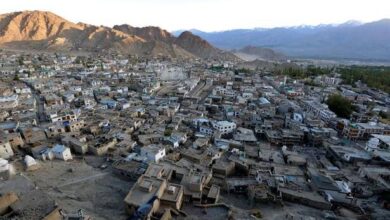How AI and Machine Learning enabled Greece to successfully detect the Covid-19 virus

Faced with inadequate infrastructure and limited resources, Greece deployed AI and machine learning to detect asymptomatic covid-19 travelers arriving at its international border. Greece became an example of one of the world’s most successful case studies in tackling coronavirus. It deployed this system during its peak tourist season between August and November 2020.
The covid-19 pandemic disrupted human life in a way never experienced before. It changed the paradigm of the entire human race. It brought a pause to the whole world and just like that, life as we know seems to have changed forever.
From the way we hang out with friends to the way we work, Covid-19 has completely transformed us as social creatures.
The Pandemic crippled the health systems across the globe causing inevitable lockdowns and helplessness among people. This unpredictable outbreak was a huge challenge for world governments and researchers. This timing was perfect for them to eye for the use of AI and machine learning in containing the virus.
The success story of Greece
The government of Greece decided to give it a shot. Under the Operations researcher Kimon Drakopoulos of the University of Southern California in Los Angeles, it launched a program that used machine learning algorithms to identify travelers entering the country who need to be tested to contain the number of cases in the country
This machine-learning system with the pet name Eva is a unique instance of how data analysis can be an indispensable asset in our fight against Covid-19. It’s a pioneering technology introduced to address a public health challenge
Researchers and developers found that machine learning was much more effective at identifying asymptomatic passengers than random testing and testing based on the country of origin of a traveler.
Random testing for Covid-19 infection is prevalent in most countries. It prioritized High-risk categories such as a person traveling from a region with a high rate of infection for testing
AI picked up people who needed to be tested
In this system, every individual entering Greece filled out a ‘passenger locator form’ 24 hours before their arrival. Wherein they provided demographic information such as the countries they have visited recently. After that QR codes were sent to them for tracking. Thus the algorithms of Eva processed the information provided in this form to identify individuals for testing for covid-19.
Along with travel checks, It also collected demographic data like the age and gender of passengers. The algorithms matched the provided data with the data from passengers who tested positive previously. It then estimated the risk of infection in a person.
The technology Eva uses is the ‘contextual bandit algorithm’. It is a machine-learning framework shaped for ‘sequential decision making. Addresses the practical limitations such as time-varying information and testing budgets
It optimized limited resources to detect infections than random testing would require. The crucial ability of AI to take feedback from test results and learn to improve its accuracy policymakers.
Eva enabled Greece to detect the spike in Covid-19 infections in any country in advance. While the whole world had shut up. Greece was still able to foster its central economic activity-tourism and reopen its borders.
Eva detected up to two to four times more asymptomatic and infected passengers than random surveillance testing.
Big data vs Covid-19
Governments and companies hold critical data such as financial details or phone records. Therefore the issue remains on sharing of this personal data and the consent to procure it and handle it safely and securely.
Eva was developed with scrutiny by the lawyers, to ensure that the system stood up to the standards of privacy protections under the EU’s General Data Protection Regulation (GDPR). Greece, a member of the EU ensured that airlines that collect personal data follow security requirements and obtain consent for its use. The norm was to collect minimal data for specific purposes.
The data collected was what people were already exposing online. Therefore only the consent was taken from the user to be utilized by public authorities in tracking the virus
So what is the problem?
Citizens across the world have their concerns like; in whose hands our private data is and what are they doing to protect our privacy?
We are aware of how AI usage can go downhill, as happens with facial recognition technologies used to track criminal behavior but can also threaten people’s privacy.
There are instances of misuse of data by the decision-making authorities in medicine and criminal justice to widen societal gaps. Therefore there is s requirement of setting up standards and regulations while using AI during emergency decision-making. Transparency on how algorithms work is a welcomed step.
They say data is the new oil. Either boon or a curse, it has become an essential part of our functioning as social creatures.
There is an abundance of methods for the deployment of AI. however, policymakers are yet to put them into use. It’s high time to formulate Data-sharing agreements and privacy-protection protocols in advance.
The major challenge was to deploy smarter ways to conduct tests in the fixed budgets allocated for testing. The Inadequate testing infrastructure makes the process costly and time-consuming. This is why most countries opt for random testing.
What can be learned from other countries deploying similar tools?
Technologies can surely help to detect, diagnose and prevent viruses. Algorithms can identify patterns and anomalies to contain the spread of the covid-19 virus. Examples of image recognition systems in medical diagnosis and early warning systems help to detect patterns developing around a virus. AI tools will benefit us to identify virus chains and assess their economic impacts as well.
Many more countries have successfully implemented similar technologies based on machine learning and algorithms. South Korea used geolocators surveillance systems and credit card details to trace Covid-19 patients. It used travel and online data to predict the location of the next outbreak and inform search engines and social media
Countries like Australia, China, Poland, Israel, Singapore, and South Korea have set up tracking systems. They use geolocation data to identify virus carriers and inform them via text messages to isolate themselves.
Successful implementation of these AI-based testing systems can be operational if the data is effectively collected and communicated on time.
The scope of AI and machine learning in India against the pandemic
Indian scenario shows few examples of AI use. Madurai and Telangana AI used to track the virus by accessing data of CCTV footage to check on people violating health protocols such as not wearing masks. Pune best startup glims analytics deployed AI to alert social distancing violations during the pandemic in toes and offices. The center of artificial intelligence and robotics DRDO developed an AI-based intelligent covid detection application named act man AI. It classified images using chest X-rays validated by doctors in Banglore.
Domestic deployment of AI techniques and machine learning would help us to contain the virus. we can track down the people moving interstate and determine specific places that could have an outbreak in the future. Timely application of such tools can become enormous help given the population of our country, The fact that India cannot afford to have nationwide log down for weeks and months however before all of this we need data protection laws and privacy laws in place to effectively ensure that it there is no misuse of data of a people
To ensure this, proposals for pandemic treaties must be considered and protocols for the use of AI and data should be outlined in advance. So that these technologies are quickly and effectively used in case of an emergency. Therefore the governments need to arrange certain limits on real-time data access for public health and usage before we hit another big crisis.
Read more on Technology: https://akashbaani.com/indias-highest-altitude-institute-located-in-ladakh-gets-lifi-technology/
https://akashbaani.com/16-indian-startups-selected-by-google-for-startups-accelerator/






One Comment